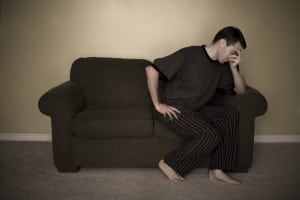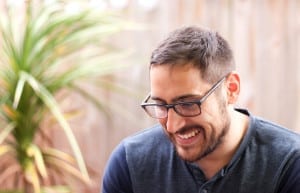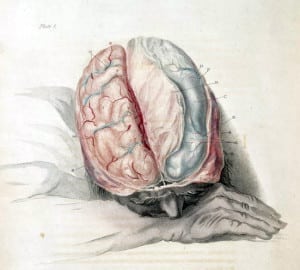If you’re struggling with opiate addiction and finding yourself clueless about how to quit, you are not alone. In fact, you are part of an ENORMOUS population of people that share a common bond.
It is estimated that somewhere between 26.4 million and 36 million people abuse opioids worldwide, with over 2.5 million residing in the US alone. I too was once in your shoes…well, not exactly; though I may not have worn your exact pair of shoes, I certainly walked down a similar path.
Recovering from opiate addiction has been the most difficult challenge I’ve faced thus far in my 36 years of life.
But I recovered, and if I can do it…anyone can.
However, the odds are not in your favor. Opiate abuse is increasing in exponential numbers, and for those individuals that actually manage to quit, it is estimated that 90% of them end up relapsing.
This staggering statistic confirms the poor prognosis: Opiate dependence is in fact a chronic, relapsing condition. But it doesn’t have to be. While of course it is the opiate abuser’s responsibility to take charge of their own life, I am also of the opinion that traditional treatment approaches are failing miserably.
In the United States, if someone has become addicted to opiates and seeks professional help, they are often presented with the following solutions:
- Detox
- Outpatient Treatment
- Inpatient Treatment
- 12-Step Programs
- Other Self Help Programs
- Counseling (Individual, Group, and Family)
- Psychotherapy
- Sober-Living Houses
- Medication-Assisted Treatment (MAT)
I want to STRONGLY emphasize that there is nothing inherently wrong with these forms of treatment. I’ve personally witnessed people having tremendous, life-altering success using them.
However, these traditional treatment modalities fail to help people quit opiates many times more than they succeed…and that is the main reason why I’ve developed this online course. I’m pretty disenchanted with the way opiate addiction treatment is going, and I want to provide you with another option.
My Story
After personally trying many of the traditional treatment approaches available, I wondered why I could never quit for more than a few days, weeks, or months at a time.
This question ultimately led me down a less traveled path. Actually, I paved my own road.
I took it upon myself to study:
- Opiate Addiction
- Psychology
- Nutrition
- Supplementation
- Herbology
- Health
- Fitness
- Spirituality
- Neuro-Linguistic Programming (NLP)
- Chinese and Ayurvedic Medicine
- Personal Growth
Along with these, I also studied many other relevant areas that I believed could help me find the answers I was PASSIONATELY seeking. As a result of my dedication to overcoming opiate addiction, I’ve made a truly remarkable recovery.
Within a few months of quitting opiates, I made it my life’s mission and purpose to help others recover from opiate addiction.
To start living this purpose-driven life, I became a Certified Substance Abuse Counselor at an Opiate Treatment Program (OTP), where I helped many individuals learn how to live life without the need for opiates and other addictive drugs.
However, after my initial excitement working with people one-on-one, I soon realized that the combination of medication and counseling wasn’t producing results that I was proud of. Some days I felt like I was making a difference, but overall, it was very sad to see so many people stuck in their painful addictions.
My Passion For Opiate Addiction Recovery
Though I saw our treatment program working well for a small minority of people, my passion and commitment to helping as many people as possible led me to leave that career. In an effort to reach more people, as well as to have total freedom of creativity, I started a blog which I named OpiateAddictionSupport.com.
I started writing about everything I learned over the past few years.
As soon as I ran short on relevant topics to write about, I began researching more than ever before. I became an “obsessed seeker of opiate withdrawal remedies,” and was one million percent dedicated to providing the most informative, helpful, and inspirational articles available on the internet.
It’s now been over two years since I started my blog.
There are over 200 articles to read, and last month there were roughly 80,000 visitors doing so. I spend on average one hour every day personally responding to blog comments, emails, and phone calls related to opiate addiction recovery.
Over three years ago I started my own coaching practice, and have been working with individuals one-on-one again. So far, my clients have over an 80% success rate.
Ultimate Opiate Detox 2.0
After nearly five years of continually developing and refining my knowledge and skills, I’ve created a unique system of opiate recovery, which I call “The 4-Pillars Method.” I share this method, along with over 50 home remedies for opiate withdrawal, in my brand new online course called Ultimate Opiate Detox 2.0.
In this online course, you’ll learn how to effectively treat the following 4 primary aspects of addiction, which include:
- Biological (Physical)
- Psychological (Mental/Emotional)
- Social
- Spiritual
Early on in my studies, I realized the main reason why most treatment programs fail to help the opiate abuser make a long-term, sustainable recovery is that they don’t address all 4 of these important aspects of addiction.
For example, I worked at an outpatient facility that provided medication and counseling.
While the counseling addressed the psychological aspect of addiction, the medications (methadone, Suboxone, and Subutex), while temporarily eliminating opiate withdrawal symptoms and cravings, actually exacerbated the biochemical imbalances in the long run…so it weakens the Physical Pillar instead of restoring it to balance.
In popular 12-step meetings such as Alcoholics Anonymous (AA) and Narcotic Anonymous (NA), the group members are heavily exposed to social and spiritual elements of recovery, though the physical and psychological realms are for the most part unattended to.
The commonality that most traditional treatment approaches share is their failure to address the physical aspect of addiction.
In his book, End Your Addiction Now: The Proven Nutritional Supplement Program That Can Set You Free, Dr. Charles Gant makes a very simple and thought-provoking statement:
The recovery process is frequently described as the restoration of body, mind and spirit. The problem is that many programs have focused only on the latter two and have ignored the “body” component of recovery.
Addictions are physical substances causing physical changes to a physical organ, the brain. So how do we conventionally treat them? With group therapy and spiritual counseling. Doesn’t make sense, does it?”
How This Course Can Help You
Addiction is a 4-part malady (Bio/Psycho/Social/Spiritual), and my system of recovery effectively treats each of these fundamental components in a natural, holistic way that is conducive to long-term recovery, health, and happiness.
By completing this course, you’ll learn simple and effective principles and strategies for recovering from opiate addiction that can help you right away.
It doesn’t matter whether you’re shooting heroin, snorting oxycodone, on Suboxone, Subutex, methadone, or even taking prescription opiates as prescribed for pain; Ultimate Opiate Detox 2.0 can work for anyone.
If you’ve felt hopeless, afraid, and desperate, this online course will ignite you with passion, confidence, and faith.
What You’ll Learn…
Ultimate Opiate Detox 2.0 consists of 4 main sections, and each section is broken down into a series of activities.
Here is just a sample of what will be covered in the course…
- 1) The current nature of the worldwide opiate epidemic.
- 2) How opiates work in the body and mind.
- 3) How people become addicted to opiates.
- 4) Why it’s so hard to quit opiates (covers important discoveries of brain adaptations relating to opiate dependence).
- 5) Medication-Assisted Treatment (why it’s working but also failing).
- 6) Your individual starting position (what your current opiate addiction or dependence situation looks like).
- 7) Building motivation for your upcoming opiate detox (cultivating a winning mindset).
- 8) Popular opiate detox plans (you’ll be provided with a large “menu” of detox protocols to choose from, including at-home detox, medical detox, and more).
- 9) Opiate withdrawal remedies (there is an entire section covering prescription medications, over-the-counter medications, and natural remedies that can be used to reduce or eliminate withdrawal symptoms).
- 10) Studies on medications and natural remedies for opiate withdrawal (I’ve collected and linked to every single study I could find on the internet that relates to an effective treatment of opiate withdrawal symptoms).
- 11) Post-Acute Withdrawal Syndrome (an overview of why people coming off opiates still suffer from symptoms for many months after getting clean).
- 12) Bio/Psycho/Social treatment plan for treating Post Acute Withdrawal Syndrome (over 20 extremely effective strategies for reducing cravings, lingering symptoms, and for boosting energy and mood).
- 13) Creating a new vision (the final section has exercises that will help you create the life of your dreams, free of addiction, and filled with love, happiness, and fulfillment.
Recovering From Opiate Addiction is a Journey
I truly honor you for the courage it takes to embark on this formidable journey. Because even when armed with the most effective strategies, recovering from opiate addiction is NEVER an easy task.
You’re going to be tested, and I’ll tell you right now the most important resource you’ll need is a strong mindset. If you don’t yet have one, this online course can help you develop it.
As for right now…it’s time to make a decision.
Do you want to continue living a life where you are not realizing your ultimate potential? Or would you rather seize the day and decide right here and now that you are no longer willing to accept your current life conditions?
The choice, as always…is yours.
Click here now to check out The Ultimate Opiate Recovery System.
Sincerely,
Matt Finch









